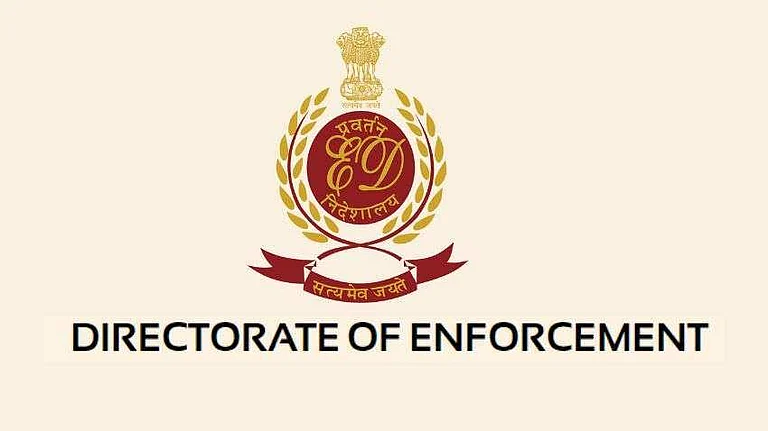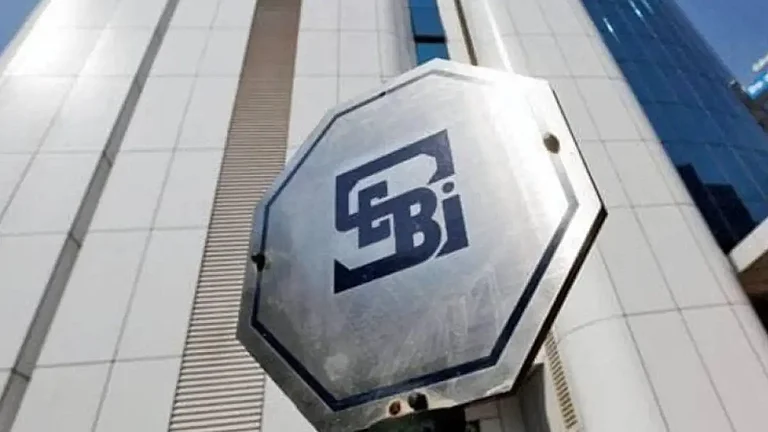
ED has named former Amtek Group chairman Arvind Dham and 55 others in its supplementary complaint to a PMLA court.
It alleges large-scale money laundering through loans from public sector banks.
The case involves Dham’s family members, ex-IDBI Bank MD, chartered accountants, resolution professionals, and Mumbai-based stock market operators.
ED claims the Amtek Group used 500 shell companies to hide ₹6,000 crore in assets via complex layering.
Arvind Dham, the former chairman of the bankrupt Amtek Group, along with 55 others, has been named in a supplementary prosecution complaint by the Enforcement Directorate (ED), alleging large-scale money laundering involving loans obtained mostly from public sector banks.
Other than Dham, who was arrested last year by the ED, the complaint includes his family members, chartered accountants, bankers (including Ex-IDBI Bank MD), resolution professionals, and some stock market operators from Mumbai.
Amtek Group, known for its auto component business, filed for insolvency in 2017 with total debt of about ₹34,000 crore across its 15 companies, including Amtek Auto Limited, ARGL Limited, and ACIL Limited. Its committee of creditors had over 90 members, one of the largest in India.
During the insolvency proceedings, lenders suffered a haircut of more than 80% of total loans, of which ₹6,300 crore remains outstanding subject to conditions to be fulfilled by the buyers of assets. A resolution plan was approved in 2020 following the Supreme Court’s intervention.
In its supplementary filing, the ED told the Special PMLA Court at Rouse Avenue, New Delhi, that it had detected around 500 shell companies created by the group to purchase and hold movable and immovable properties worth more than ₹6,000 crore from siphoned funds.
“Such shell companies, through multiple layering, had purchased the said immovable properties and the promoters were made ultimate beneficiaries. The assets were purchased through a complicated layering process to conceal them from NCLT proceedings, and the resolution professionals could not perform the due diligence role assigned to them,” the agency said on Monday.
What Happened with Amtek Group
Before discussing the ED’s case, it’s important to understand how it reached the agency. Amtek was one of 12 major firms—nicknamed the “Dirty Dozen”—to face proceedings under the Insolvency and Bankruptcy Code 2016. Allegations surfaced years after Amtek, once a leading auto components supplier, collapsed under a mountain of debt incurred from acquiring overseas companies. By 2015, its bank borrowings had jumped from ₹3,800 crore to ₹14,200 crore, and it defaulted on loans and ₹800 crore worth of bonds. In 2017, banks including IDBI Bank and Bank of Maharashtra dragged it to the NCLT.
In 2022, a whistleblower complaint changed the course of the case. Delhi High Court advocate Jaskaran Chawla sought a CBI and ED probe into Amtek Auto promoter Arvind Dham, 27 company employees, resolution professional Dinkar Venkatsubramanian, EY partner Vivek Aggarwal, Ernst & Young, and unnamed IDBI Bank officials. The complaint alleged the creation of a benami network to siphon funds, IDBI Bank’s failure to recall loans despite NOC breaches, and lapses in a 2018 EY forensic audit covering Amtek transactions from 2015–17.
It claimed the audit revealed fund diversion via 127 related entities but omitted key financial records, and accused the resolution professional of not reporting economic offences. The complaint sought seizure of bank accounts linked to the Dham family, benamidars, and related parties, as well as probes into foreign fund transfers.
On 27 February 2024, the Supreme Court, while hearing a PIL, directed the ED to investigate. The CBI also registered FIRs based on complaints from IDBI Bank and Bank of Maharashtra, alleging illegal diversion.
What the ED Alleges
The ED investigation revealed that certain chartered accountants filed fraudulent audit reports, covering up fictitious inflation of fixed assets in the books and failing to flag fraudulent diversions and criminal misappropriation by the group. The complaint also named bankers who sanctioned loans in exchange for undue benefits and “evergreened” loans without following RBI guidelines. Such evergreening, without proper due diligence, and subsequent defaults worsened NPAs for these banks.
One particular name that has emerged is former IDBI Bank MD R M Malla. According to the Economic Times, which cited court documents, the ED’s March 2025 attachment order linked Malla and his family to proceeds of crime worth ₹557 crore in the Amtek Auto case. During his tenure (2010–13), Amtek secured large IDBI loans.
The ED alleges that three Amtek-linked property-holding firms—Sakaleshwar Buildcon, Vasikaran Real Estate, and Adonis Buildprop—held valuable Delhi-NCR assets that were later transferred to Malla’s family at little or no payment, often without valuation, agreements, or genuine ownership records. Examples include a ₹10.42 crore property acquired for ₹3.48 crore, a property given free to Malla’s wife during Amtek’s insolvency, and Vasikaran Real Estate assets worth over ₹20 crore acquired through forged shareholding.
The ED has also questioned Mumbai-based stock market operators who allegedly helped the Amtek Group defraud foreign portfolio investors of nearly ₹1,000 crore invested in Castex Technologies Limited. These operators were hired to artificially rig the company’s share prices.
“From the money trail, it was found that the Amtek Group had itself provided funds siphoned off through bank loans to these stock operators for artificial share price rigging of its own group company,” the agency said.
The ED also probed NCLT proceedings where IBC provisions were allegedly misused for the benefit of promoters. Even before the NCLT proceedings, the promoter group had transferred assets at undervalued rates using front entities and benami persons. The supplementary prosecution complaint also covered the role of resolution professionals who, according to the agency, violated IBC provisions.
After the resolution of the group companies, personal insolvency proceedings against Arvind Dham were initiated by a committee of 23 creditors with claims over ₹38,000 crore. Dham proposed to pay just ₹35 crore for these claims. Meanwhile, around 500 shell companies created by the group had purchased and held properties worth more than ₹6,000 crore from siphoned funds.
Over ₹6,261.37 Crore Attached
The ED has now attached assets worth ₹6,261.37 crore, mostly valued at book or circle rates, with market values believed to be substantially higher. Most of these assets carried no charge from lenders affected by the fraud. On 5 September 2024, the agency provisionally attached properties worth ₹5,115.31 crore. Subsequent investigations this year led to two more provisional attachment orders worth ₹557.49 crore and ₹588.57 crore.
The case has also seen the arrest of Amtek promoter Arvind Dham following searches at over 40 locations. The agency filed its first prosecution complaint in September 2024. The supplementary complaint now details the roles of promoters, key managerial personnel, auditors, bankers, resolution professionals, and Mumbai-based stock operators in the Amtek Auto money laundering probe.



































